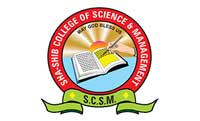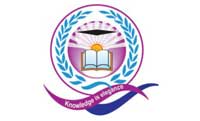notifications
B.S.c. (Aviation)
B.S.c. (Aviation)

Course Overview
BSc Aviation is a 3-year course that focuses on the mechanical and scientific study of the aviation industry. It deals with the theoretical aspects of helicopters, and aircraft that help in maintenance and improved performance. A BSc Aviation course is an undergraduate program that offers in-depth knowledge and training in various aspects of aviation. These programs are typically designed to provide students with a comprehensive understanding of the aviation industry, including the technical, operational, and management aspects.
BSc Aviation programs usually include core subjects related to aviation, such as aviation safety, air traffic management, aircraft systems, navigation, and aviation regulations. These subjects form the foundation of your aviation knowledge. Some BSc Aviation programs incorporate flight training, allowing students to gain hands-on experience in piloting aircraft. Flight training often leads to obtaining a private pilot's license or other relevant certifications. Aviation is not just about flying; it also involves managing airports, airlines, and aviation-related businesses. BSc Aviation programs often include coursework in aviation management, aviation economics, and aviation law.
The Bachelor in Aviation (B.Sc. in Aviation) is an undergraduate degree program centered on the study of aviation science, encompassing various aspects such as airline management, air traffic control, aircraft design and operation, airport and airline administration, and aircraft maintenance. Aviation science encompasses all the essential elements required to ensure the safe and efficient functioning of airlines. In this context, "aircraft" encompasses a diverse range of commercial flying machines, including airplanes, helicopters, gliders, and military jets.
Eligibility
To qualify for enrollment in the B.Sc. in Aviation program, prospective students should have successfully finished or be in the process of completing their 10+2 education or an equivalent qualification from an accredited board. This educational background should include coursework in Physics, Chemistry, and Mathematics.
Course Syllabus
The course syllabus of BSc Aviation programs offers a comprehensive and multifaceted exploration of the captivating aviation industry. This educational journey begins with a solid foundation in core subjects, encompassing aviation safety, air traffic management, aircraft operations, maintenance, and regulatory compliance. Students immerse themselves in understanding aircraft systems, navigation, flight planning, and safety protocols that are essential for the safe and efficient operation of aircraft. Furthermore, the syllabus extends its reach to more advanced aviation topics, such as aircraft design and engineering, providing insights into aerodynamics and the mechanics of flight. In addition to these fundamental elements, students have the opportunity to delve into the intricate world of airport management, gaining expertise in airport operations, administration, and development. They also explore aviation economics, diving into the financial aspects of the aviation industry, including airline finance, pricing strategies, and market analysis. Practical training components are integral to BSc Aviation programs, enabling students to apply their theoretical knowledge in real-world settings through flight simulations, aircraft maintenance workshops, and internships with airlines, airports, or aviation organizations.
Job Opportunities
The aviation industry offers diverse career opportunities, and BSc Aviation graduates are well-prepared to contribute to this dynamic field in various capacities, from flying aircraft to managing airport operations and ensuring safety and efficiency in air travel.
- done Air Traffic Controller: Air traffic controllers play a crucial role in guiding aircraft safely through airspace. Graduates can work in air traffic control centre, ensuring safe and efficient air travel
- done Aircraft Maintenance Engineer: BSc Aviation graduates can become aircraft maintenance engineers responsible for inspecting, repairing, and maintaining aircraft to ensure their safety and airworthiness.
- done Airport Manager: Graduates can work as airport managers, overseeing airport operations, including passenger services, security, and facilities management.
- done Aircraft Dispatcher: Aircraft dispatchers plan flight routes, monitor weather conditions, and coordinate with flight crews to ensure safe and efficient flights.
- done Aviation Safety Officer: These professionals focus on ensuring aviation safety and compliance with safety regulations, often working for airlines or regulatory authorities
- done Cargo Operations Manager: In the logistics sector, graduates can work as cargo operations managers, overseeing the transportation of goods by air.
- done Flight Dispatcher: Flight dispatchers work closely with pilots, coordinating flight plans, weather updates, and fuel calculations to ensure safe and efficient flights.
- done Aircraft Leasing and Finance: Some graduates enter the field of aircraft leasing and finance, working for companies that lease aircraft to airlines or provide financing solutions for aviation projects.
Sha-Shib Group is a prestigious institution offering BSc Aviation courses, opening doors to the captivating realm of aviation. With a rich history of excellence in aviation education, Sha-Shib Group is passionately dedicated to nurturing the next generation of aviation professionals. Their BSc Aviation program boasts a comprehensive curriculum meticulously designed to equip students with the knowledge and skills necessary for a myriad of careers in the aviation industry. The institution is unwaveringly committed to fostering a learning environment conducive to growth, led by experienced faculty members and enriched with hands-on training opportunities.



